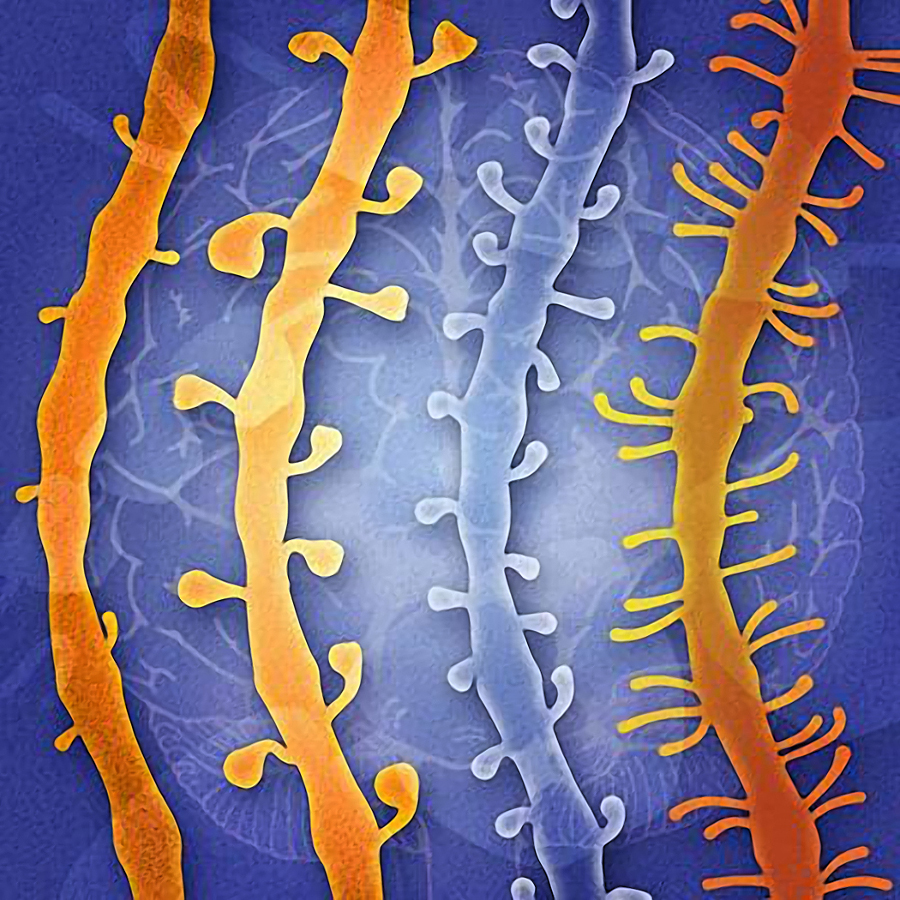Supporting role

During development and learning, neurons in the brain grow small protrusions along branching dendrites—the dendritic spines—to boost cell-to-cell connectivity.
This process may be modulated by neuronal supporting cells, called astrocytes, more than previously thought according to new research by Yi Zuo, professor of molecular, cell, and developmental biology. The study was published in Biological Psychiatry.
Zuo discovered the astrocytes' contribution by first studying mice with Fragile X syndrome, in which a lack of Fragile X mental retardation protein (FMRP) leads to too many dendritic spines and impaired motor skills.
While neurons and astrocytes both express the FMRP protein, the neurons have 10 times as much, noted Zuo. So, she was surprised to find that selectively eliminating FMRP in astrocytes—while maintaining neurons' protein expression—still led to symptoms of Fragile X. "Even though astrocytes express very little of this protein, they seem to be contributing to the disease," said Zuo.
Next, Zuo's team seeks changes in astrocytes that may be important for synaptic transmission. She also wants to learn more about the role of astrocytes in aging.
"Neurons are still very important," said Zuo, "but we should pay more attention to astrocytes."

